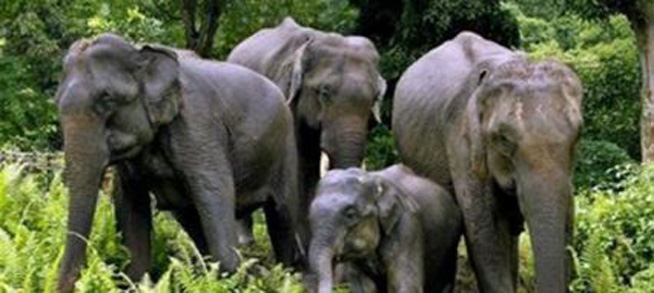
Odisha Channel Bureau
Bhubaneswar: Vide letter dated 17th September, 2021 issued to the Chief Wildlife Warden, Odisha and other authorities, the Wildlife Society of Orissa has raised concerns over the effectiveness and life of the radio collars proposed to be fitted on tuskers of Odisha to monitor their movement.
The Wildlife Wing has initiated the process of radio collaring of elephants of Chandaka sanctuary after which more elephants would be radio collared in Sundargarh division and other parts of Odisha.
“While this effort to closely monitor tuskers is laudable, the available radio collar technology may not deliver expected results given its failure in Chhattisgarh,” said Biswajit Mohanty, secretary of Wildlife Society of Orissa in a statement on September 21.
Radio collaring elephants which was started in collaboration with Wildlife Institute of India in October, 2018 in Chhattisgarh has not been successful as the collars used dropped off or were removed by the elephants themselves within a short time ranging from 4 days to a few months, said Mohanty.
The radio collars which had been procured from Australia did not stay long enough and out of five radio collars attached to elephants, three fell off by May, 2019 and by March, 2020 one more had fallen off. Out of a total of 7 radio collars fitted to the elephants in Chhattisgarh as of now only one remains active the rest having fallen off, he claimed.
It is a fact that elephants are extremely intelligent animals and also playful in nature. A radio collar fitted on a tusker attracts the attention of the rest of the herd and some adventurous animal tries to tug it with its tusk pulling it off in the process. Though the pre charged battery is expected to last at least 5 years it is a pity that six transmitters were lost within a short time; some fell off within 5 days too, he pointed out.
“A radio collar costs around Rs.5 lakh and there are additional costs of at least Rs. 5 lakh per year to track the satellite signals and monitor the elephant. We feel it is of utmost importance to carefully assess the effectiveness and durability of the collars keeping in view the fact that the project failed in Chhattisgarh. Now their elephants are being visually monitored by ground tracking teams. Odisha Forest Department also has engaged elephant trackers who follow the herds and report their position on a regular basis,” Mohanty added.
WSO has urged the Chief Wildlife Warden, Odisha to obtain all information from Chhattisgarh Forest Department about the performance of the radio collars fitted on elephants by WII during the period 2018 to 2020 and assess its effectiveness before fitting radio collars on elephants of Odisha.

















